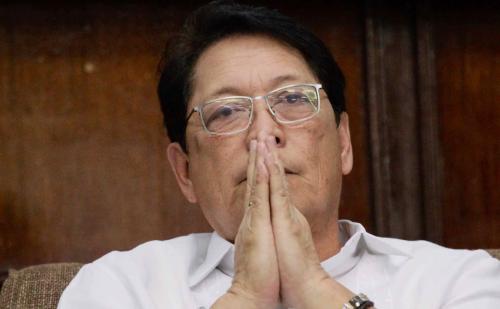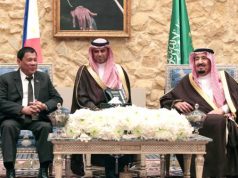MANILA, Philippines – The Philippine government is looking into the possibility of shouldering the unpaid wages and benefits of Filipinos workers in Saudi Arabia, who lost their jobs due to the oil crisis in the kingdom.
Department of Labor and Employment Secretary Silvestre Bello III told this to reporters in Riyadh Tuesdayt night during President Rodrigo Duterte’s state visit to the Arab state.
But Bello said that before the Philippine government decides to pay in advance the claimants’ wages and benefits, it must first validate if Filipino workers would indeed be paid later by their former employers in Saudi Arabia.
“Sabi ko, ivalidate n’yo ang mga claims. Pag sigurado na may makukuha pa, we can advance the money to them. We will allow them to borrow [from] the OWWA (Overseas Workers Welfare Administration),” Bello said.
Thousands of unpaid Filipino workers remain stranded in the kingdom as employers hit hard by an economic slump withheld their pay for months. Many of them have expired iqama or residence IDs and are technically staying in Saudi Arabia illegally, with some unable to afford even the fare to go to the embassy.
Among them was 56-year-old Rizalino Jacinto, who died in August 2016 with his wages still unpaid for eight months.
His wife said Jacinto, who was in coma after suffering massive cerebral hermorrhage, died of severe depression.
Foreign governments had been pressing authorities and executives in Saudi Arabia to ensure that local construction firms make delayed salary payments to thousands of workers.
Since 2015, the Saudi government has responded to shrinking oil revenues by clamping down on state spending to curb a budget deficit running at about $100 billion annually.
This had squeezed construction firms in the kingdom as they had received less money from the government.
About 10 million people, largely from South Asia, Southeast Asia and other parts of the Mideast, work in Saudi Arabia.
Most of them do low-paid jobs in sectors which Saudis spurn, such as construction, domestic service and retailing. -with reports from Reuters





